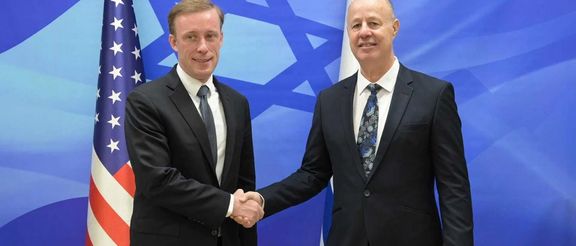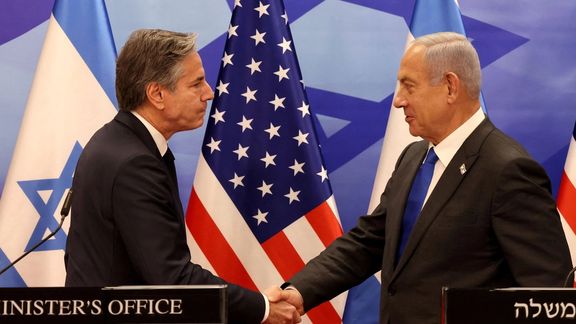US And Israel Continue To Wrangle Over Iran

Top US and Israeli national security officials met in Washington Thursday and discussed “enhanced coordination” to prevent Iran from acquiring a nuclear weapon.

Top US and Israeli national security officials met in Washington Thursday and discussed “enhanced coordination” to prevent Iran from acquiring a nuclear weapon.
Assistant to the President for National Security Affairs Jake Sullivan hosted Israeli National Security Advisor Tzachi Hanegbi and Minister of Strategic Affairs Ron Dermer at the White House to continue high-level discussions following up on the March US-Israeli Strategic Consultative group that had focused on Iran’s nuclear program and “ways to counter threats from Iran and its proxies.”
The meeting followed reports and speculations in recent days that Washington was discussing some possible deals with Iran to secure the freedom of American hostages in Tehran in exchange for expediting the release of Iranian funds frozen in South Korea and Iraq.
A State Department official Thursday told Iran International that US policy has not changed in regard with Iran’s nuclear program and President Joe Biden is “fully committed” not to ever allow Iran to acquire nuclear weapons. The official said that the United States “in full coordination with its allies and partners” is preparing all options to deal with Iran’s nuclear program.
However, the spokesperson reiterated that the administration continues to believe in diplomacy as the best way to achieve this goal, although talks to revive the JCPOA accord are not on Washington’s agenda.
However, the state of US-Israeli relations might not be so clear. Israel’s Channel 13 television reported that US Secretary of State Antony Blinken has called off a planned visit to Israel next week amid tensions between Jerusalem and Washington over Iran.

At the same time, Blinken after a meeting with British, French and German foreign ministers tweeted that “I also underscored U.S. concerns about Iran’s nuclear escalation.”
Israeli Prime Minister Benjamin Netanyahu separately in a video message said, "I have heard all of the reports about Iran. I have a sharp and clear message for both Iran and the international community: Israel will do whatever it needs to do to prevent Iran from obtaining nuclear weapons."
Clearly, Israel is demanding tougher responses to continued Iranian nuclear build-up. Whether Jerusalem is insisting on a military attack at this point is not clear, but tougher diplomatic and economic measures are certainly among its demands from Washington.
UN’s nuclear watchdog, the International Atomic Energy Agency, IAEA, issued a report to its members states this week that reportedly said Iran now has 114 kilograms of uranium enriched to up to 60-percent – an increase of 26.6 kg from the previous quarter. This can be easily further enriched to 90-percent purity needed for nuclear weapons in around two weeks.
The IAEA also reported that Iran has shown some flexibility regarding the Agency’s demands. This could be an effort by Tehran to forestall censure at the IAEA board meeting this month. One of Israel’s demands might be a strong condemnation of the Islamic Republic by the board.
About 42 kg of uranium enriched to 60-percent is what the IAEA calls a "significant quantity", defined as "the approximate amount of nuclear material for which the possibility of manufacturing a nuclear explosive device cannot be excluded".
Although Washington says there is no evidence that Iran has decided to proceed and build a weapon, in testimony to Congress in March, Gen. Marky Milley, chairman of the Joint Chiefs of staff, warned that Tehran could “field” a bomb in several weeks, if it made the crucial decision.